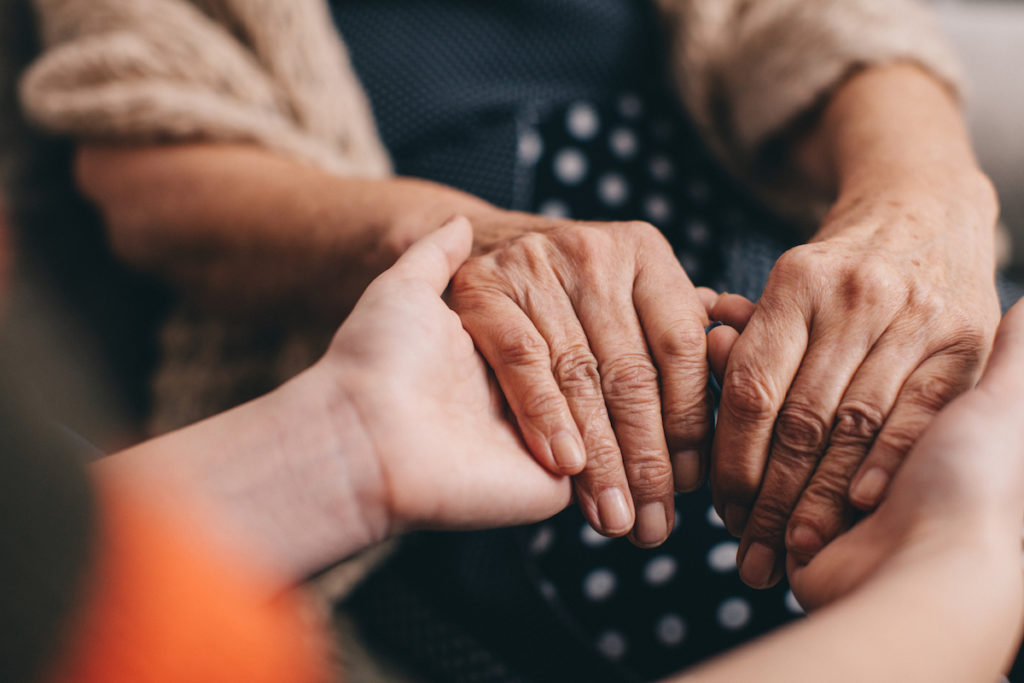Grandparents can play a vital role in a grandchild’s life. They provide support, kindness, laughter and above all else, unconditional love to their grandchildren. Unfortunately, when a grandparent is struggling with alcoholism, all of this can change. While their intentions might be in the right place, an alcoholic grandparent can be dangerous and toxic to their grandchild. They can, and frequently do, unintentionally hurt the people they love by choosing alcohol over their family members – a decision that grandchildren are often too young to understand. As parents, how do you protect your children from the heartbreak of their alcoholic grandparent(s) without permanently fracturing the relationship between the two?
Set Boundaries With An Alcoholic Grandparent
When your mother or father is struggling with alcoholism, it can be challenging to deal with their increasingly erratic behaviors. It becomes even more difficult when you have children of your own. You want your children to have the love and support of their grandparents, but not suffer the consequences of their grandparent’s drinking problem. In order to make the relationship between grandchild and alcoholic grandparent work, you have to set boundaries with your child’s grandparent. These boundaries should be definitive and if broken, have consequences. Some common limits you can try implementing are:
- Grandparent(s) can’t see their grandchild unless sober
- Grandparent(s) can’t come inside the house unless sober
- Grandparent(s) visits with grandchildren must be supervised by you or your spouse
- Grandparent(s) can only visit with grandchildren in a public space
- Grandparent(s) can’t drink around grandchildren
Setting these boundaries around your parent’s behavior can be difficult because the parent and child roles are reversed in this situation. However, having them in place is essential for the safety of the children, who are the number one priority for both you and your addicted parent. If the addicted grandparent clings to their right to drink instead of agreeing to your rule or breaks one of your discussed boundaries, they’re not allowed to see their grandchildren. While this might seem harsh, repeated exposure to an alcoholic grandparent and this lifestyle can negatively affect children mentally, physically and emotionally. [middle-callout]
Talk About Alcohol And Alcoholism With Your Children
Watching your parent suffering from alcohol addiction can be frustrating and heartbreaking. After all the pain it has caused you, not talking about it may be more comfortable. However, it’s essential to have an age-appropriate conversation with your child about their alcoholic grandparent. A grandchild should know that their grandparent’s odd behaviors or absence do not mean that their grandparent doesn’t love them. Instead, it means that their grandparent is struggling with a terrible disease that makes them toxic and unsafe to be around at times. Additionally, as your children get older, they will likely experiment with alcohol. While this is a common activity that many children do before the age of 21, it is critically important that your child knows that they should be extra careful when drinking. Anyone whose grandparent, parent, aunt or uncle is an alcoholic is more likely to become one, too, according to the National Institute on Alcohol Abuse and Alcoholism. Grandchildren of addicted grandparents need to know the warning signs of alcoholism, including:
- Blackouts or short-term memory loss
- Making excuses for drinking habits
- Choosing to drink over other responsibilities
- Isolating from friends and family members
- Drinking alone or in secret
- Feeling hungover when not drinking
Most importantly, encourage your children to ask questions or express concerns to you or your spouse about alcohol and their personal drinking habits at any time with no judgment. This allows the dialogue to remain open and evolve over time.
Don’t Talk Poorly About Your Child’s Alcoholic Grandparent
Your child’s grandparent is still their grandparent regardless of their addiction. While they may be in jail, in treatment, or in denial of their illness at any given moment, that doesn’t mean an addicted grandparent can’t recover in the future and rekindle a relationship with you and their grandchild. If you do speak poorly about a grandparent struggling with alcoholism, it could profoundly fracture the relationship between your child and their grandparent beyond repair. Or, it could cause tension in your relationship with your child. This friction can create a tumultuous and unhealthy environment for everyone involved. Instead, encourage your child to remember happy memories of their grandparents and share some of your own positive memories while remaining honest about the realities of addiction. Preserving good memories of an alcoholic grandparent while building an honest understanding of addiction will help your child separate their grandparent from their alcoholism.
Find A Support Group
Addiction is a disease that affects numerous families in the United States. According to the National Survey on Drug Use and Health, 21.5 million American adults battled a substance use disorder. While you and your children may feel alone in your struggle with an alcoholic grandparent, there are many families going through the same pain and heartbreak. While support can come from anyone, it can be especially therapeutic for grandchildren to speak with others who are coming to terms with their alcoholic grandparent. As addiction becomes increasingly prevalent in people 65-years-old or older, there has been a surge in alcohol addiction treatment support groups for families. Grandchildren learning to cope with an alcoholic grandparent should seek out their local Al-Anon or Nar-Anon chapters to start connecting with others facing similar challenges. — When addiction changes a grandparent into someone toxic and dangerous, it can be hard for grandchildren to come to terms with. By taking the right steps, parents can prepare their children to accept their alcoholic grandparent, learn about the disease of addiction and build hope for a future relationship.


